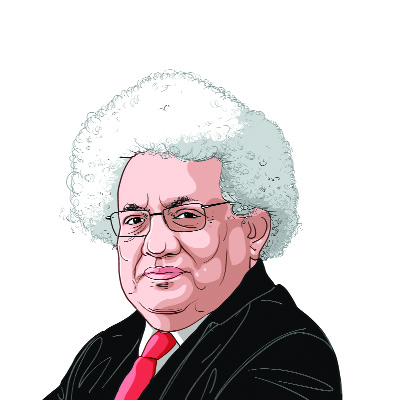Opinion Small Change
During PV Narasimha Raos prime ministership,I once heard an exchange which has stayed in my mind.
During PV Narasimha Raos prime ministership,I once heard an exchange which has stayed in my mind. One journalist was saying to another,that one of the share market scamsters had been seen taking Rs 4 crore in a suitcase to the PM. Whereupon the other said,Impossible. Why would the PM even sneeze at such a paltry sum of money?
I recall being amused rather than shocked by the exchange. We have come a long way since then. In the Rao case,we all remember the saga of the JMM votes being bought with large sums of money. Now come the WikiLeaks. Obviously the price of
That was 2008.What is it now,I wonder. Has it kept up with inflation or the latest hike in MPLADS,granted so generously and in a timely manner by the FM? We need the next Economic Survey to carry a research note on this important issue as it will then tell us what is the real rate of return to entry in politics,which must be one of the highest in any sector. How political parties are financed is a black (money?) box. But we can use economics to unravel some insights.
Politics is not a sector where perfect competition prevails. We have oligopoly as a rule. Large parties may win seats and even hold power as the largest in a coalition. But it costs a lot to keep a large party afloat. The Congress set the pattern long ago to charge derisory sums for membership so that is not a source of income that is worth much.
Only a few political firms (parties) compete. Entry is limited and costly but you can have even a small localjatiparty such as the RLD or RJD. You need a tightly controlled vote bank. And then,if you have three or four MPs,you are in business. The privilege of being an MP can be confined to the immediate family,which may,as in the case of Tamil Nadu Chief Minister M Karunanidhi,include the progeny of several wives. If you let outsiders into the privilege,you will regret it. A Rajas example may not be repeated. Occasionally,some rich businessman may offer the party large sums of money to get nomination for a seat in the Rajya Sabha,as a BJP chief minister was heard to say out publicly,even taking names. He was of course misquoting himself.
Large parties have to win power with sufficient frequency at the Centre or at the state level to raise funds to keep the party going. But when they get power,they have to share the loot with coalition partners,who sometime insist on the ATM ministries. Yet there is so much around,that MPs of small parties outside the coalition can also be easily placated. Thus,an entire political system is complicit in the generation and distribution of black moneyall cash with the smiling face of the Father of the Nation. What better way can there be of remembering him?
Where does the money come from? Unofficial history says the practice of collecting money from businesses in return for licence-permits began seriously in the 1970s when Indira Gandhi tightened the reins of the economy in the hands of the State. Socialism was clearly the lifeblood of Indian democratic politics but then there was a single party monopoly. After the defeat of the Congress,other parties took up the practice and learned quickly. Who can forget the embarrassment of the BJP/NDA coalition in the Tehelka scandal?
By then,liberal reform had enhanced the price of each licence-permit,which still remained to be doled out. Here at last was (to take a phrase from the Chinese Communist Party),socialism with Indian characteristics. India does not rely on Moscow gold or even American dollars. It has its own reservoir of cash to finance its unique democracy. Amar Singh is right. It is just small change.





